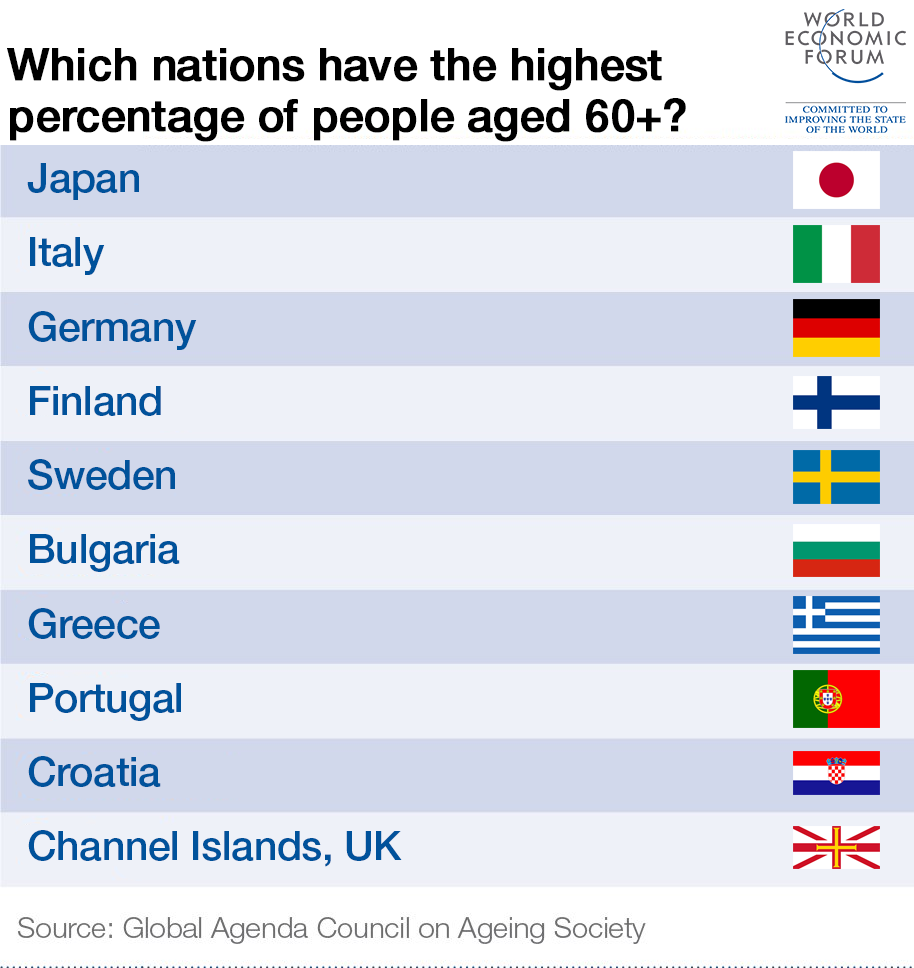Can refugees revive Europe’s ageing population?
Stay up to date:
Youth Perspectives
Europe is facing a demographic crisis. In the World Economic Forum’s Global Population Ageing Report, nine of the 10 nations with the largest populations of over-60s and over-80s are in Europe. Only Japan has more senior citizens.
With that in mind, could the current refugee crisis offer long-term benefits to the nations that open their borders? Over half of the migrants applying for asylum were aged between 18 and 34. Add in teenagers and children, and you have a migrant population of which 81% are under the age of 34.
In Germany, where many migrants hope to settle, the national population has shrunk by 1.4 million in the last decade. This trend could lead to a further reduction of 10 million by 2060. Europe’s largest economy has already begun to see the benefits of migration: in 2014 its population saw the largest increase since 1992.
 Have you read?
Have you read?
Why Europe needs economic migrants
Is migration a solution for youth unemployment?
How can we solve the global refugee crisis?
Author: Donald Armbrecht is a freelance writer and social media producer.
Image: An elderly woman walks on a stick along a shopping street in Berlin. REUTERS/Thomas Peter
Don't miss any update on this topic
Create a free account and access your personalized content collection with our latest publications and analyses.
License and Republishing
World Economic Forum articles may be republished in accordance with the Creative Commons Attribution-NonCommercial-NoDerivatives 4.0 International Public License, and in accordance with our Terms of Use.
The views expressed in this article are those of the author alone and not the World Economic Forum.
Forum Stories newsletter
Bringing you weekly curated insights and analysis on the global issues that matter.
More on Youth PerspectivesSee all
Christie Burley and Lindsey Prowse
May 20, 2025
Kulé Galma
April 15, 2025
Roberta Bosurgi and Ruma Bhargawa
March 7, 2025
Christa Odinga-Svanteson
March 7, 2025
Mario Truss and Benedikt Gieger
February 18, 2025




